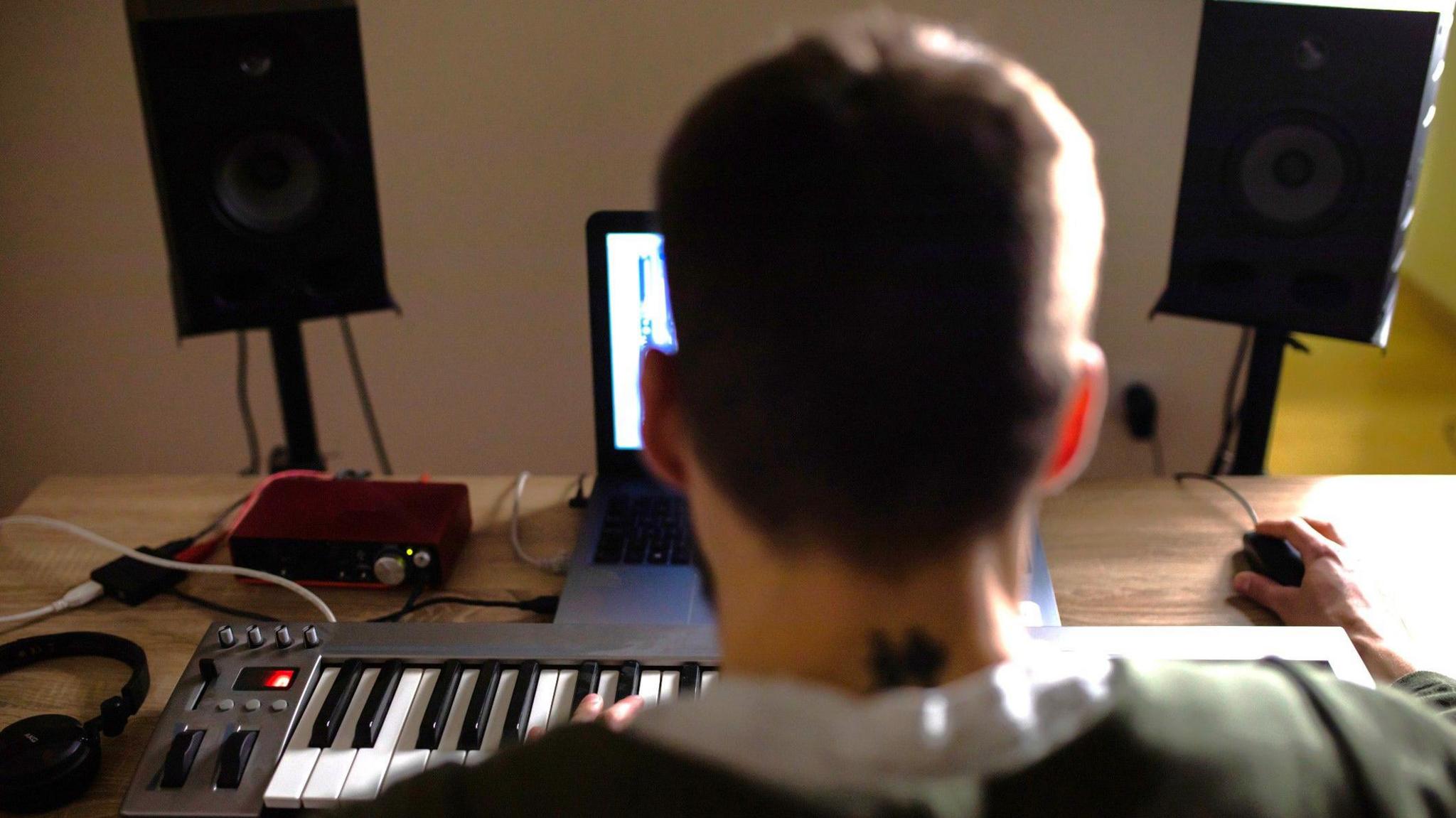Man accused of using bots and AI to earn streaming revenue

- Published
A musician in the US has been accused of using artificial intelligence (AI) tools and thousands of bots to fraudulently stream songs billions of times in order to claim millions of dollars of royalties.
Michael Smith, of North Carolina, has been charged with three counts of wire fraud, wire fraud conspiracy and money laundering conspiracy charges.
Prosecutors say it is the first criminal case of its kind they have handled.
"Through his brazen fraud scheme, Smith stole millions in royalties that should have been paid to musicians, songwriters, and other rights holders whose songs were legitimately streamed," said US attorney Damian Williams.
According to an unsealed indictment detailing the charges, the 52-year-old used hundreds of thousands of AI-generated songs to manipulate streams.
The tracks were streamed billions of times across multiple platforms by thousands of automated bot accounts to avoid detection.
Authorities say Mr Smith claimed more than $10m in royalty payments over the course of the scheme, which spanned several years.
Prosecutors said Mr Smith was set to finally "face the music" following their investigation, which also involved the FBI.
"The FBI remains dedicated to plucking out those who manipulate advanced technology to receive illicit profits and infringe on the genuine artistic talent of others," said FBI acting assistant director Christie M. Curtis.
'Instant music ;)'
According to the indictment, external, Mr Smith was at points operating as many as 10,000 active bot accounts to stream his AI-generated tracks.
It is alleged that the tracks in question were provided to Mr Smith through a partnership with the chief executive of an unnamed AI music company, who he turned to in or around 2018.
The co-conspirator is said to have supplied him with thousands of tracks a month in exchange for track metadata, such as song and artist names, as well as a monthly cut of streaming revenue.
"Keep in mind what we're doing musically here... this is not 'music,' it's 'instant music' ;)," the executive wrote to Mr Smith in a March 2019 email, and disclosed in the indictment.
Citing further emails obtained from Mr Smith and fellow participants in the scheme, the indictment also states the technology used to create the tracks improved over time - making the scheme harder for platforms to detect.
In an email from February, Mr Smith claimed his "existing music has generated at this point over 4 billion streams and $12 million in royalties since 2019."
Mr Smith faces decades in prison if found guilty of the charges.
Earlier this year a man in Denmark was reportedly handed an 18-month sentence after being found guilty of fraudulently profiting from music streaming royalties, external.
Music streaming platforms such as Spotify, Apple Music and YouTube generally forbid users from artificially inflating their number of streams to gain royalties and have taken steps to clamp down on or advised users on how to avoid the practice.
Under changes to its royalties policies, external that took effect in April, Spotify said it would charge labels and distributors per track if it detected artificial streams of their material.
It also increased the number of streams a track needs in a 12 month period before royalties can be paid, and extended the minimum track length for noise recordings like white noise tracks.
Wider concerns
The wider rise of AI-generated music, and the increased availability of free tools to make tracks, have added to concerns for artists and record labels about getting their fair share of profits made on AI-created tracks.
Tools that can create text, images, video, audio in response to prompts are underpinned by systems that have been "trained" on vast quantities of data, such as online text and images scraped, often indiscriminately, from across the web.
Content that belongs to artists or is protected by copyright has been swept up to form part of some of the training data for such tools.
This has sparked outrage for artists across creative industries who feel their work is being used to generate seemingly novel material without due recognition or reward.
Platforms rushed to remove a track that cloned the voices of Drake and The Weeknd in 2023 after it went viral and made its way onto streaming services.
Earlier this year, artists including Billie Eilish, Chappell Roan, Elvis Costello and Aerosmith signed an open letter calling for the end to the "predatory" use of AI in the music industry.